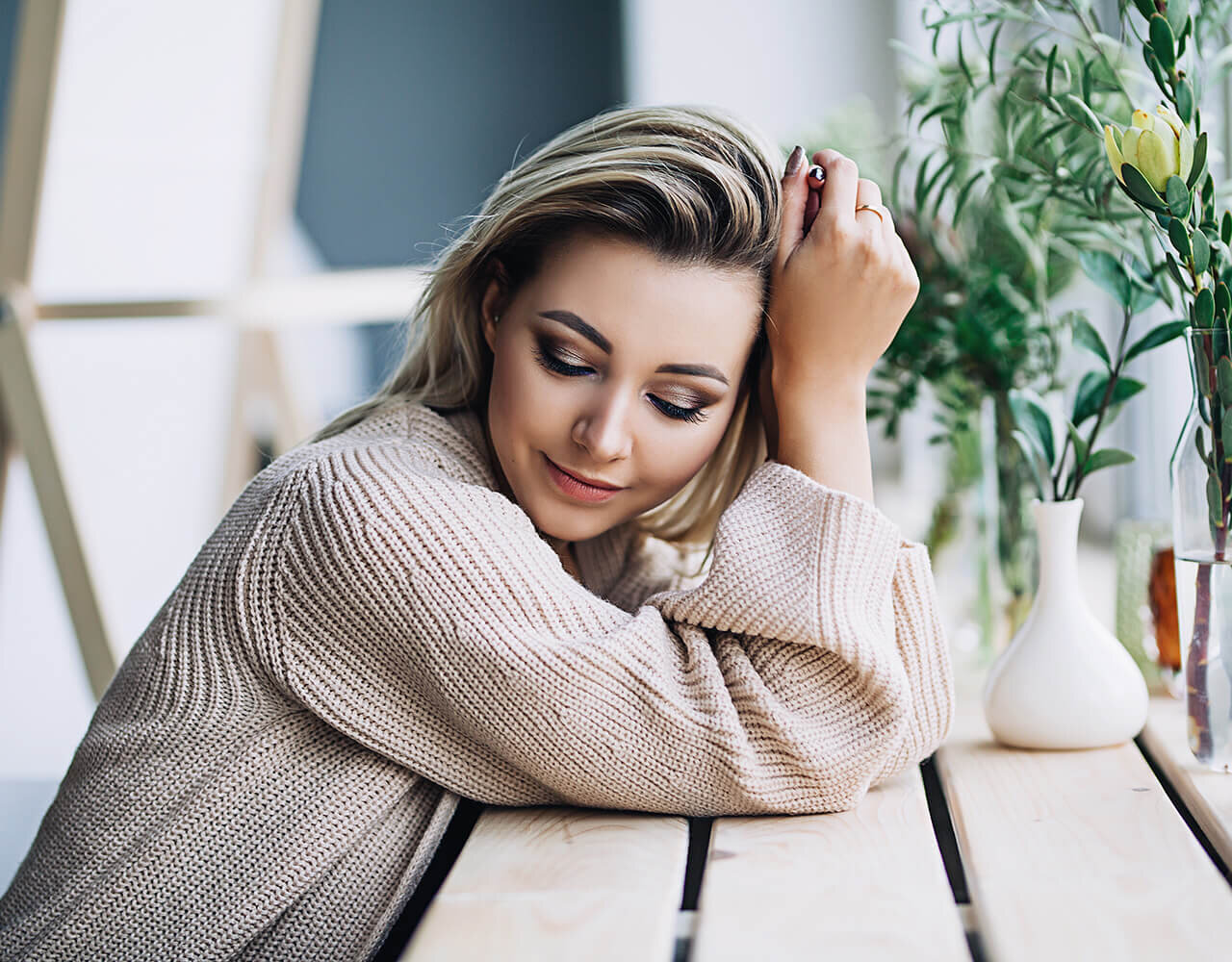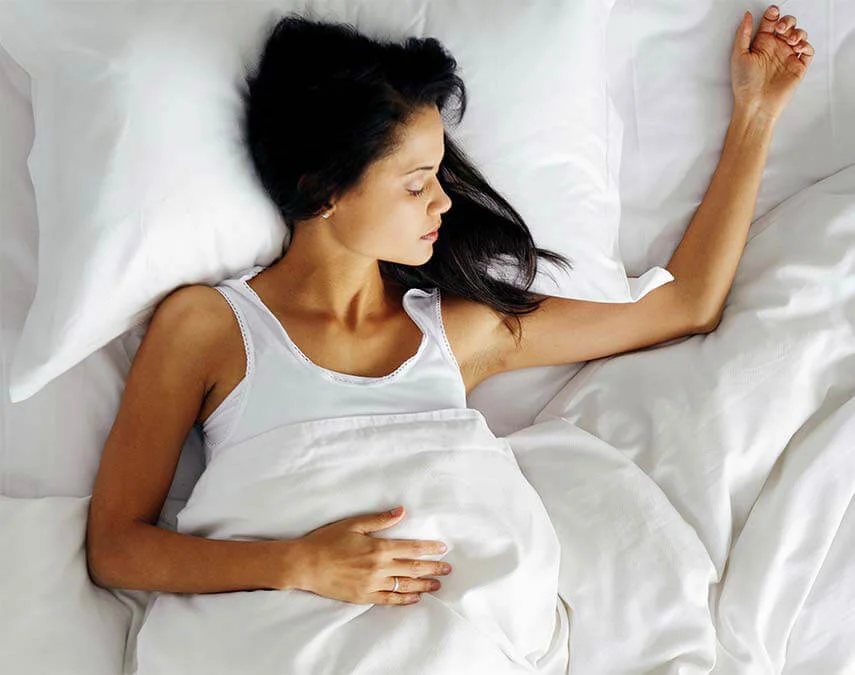Consider Limiting Your Daily Caffeine Intake For A Healthy Lifestyle
It’s 6 am on a Monday morning. What are you doing to help yourself wake up? If it’s sipping a cup of coffee as you zone out in front of the morning news, you’re not alone. Millions of Americans rely on caffeine to help them wake up in the morning - and to stay awake during the day.
It’s not just Americans who need a dose of this liquid accelerant in order to get by, either. In tea-drinking countries, like Swede and Great Britain, people consume up to 600 milligrams of caffeine per day - more than twice the amount that we consume, on average, here in the US.
Caffeine is a helpful drug that provides many lifestyle and health benefits. However, when consumed in excess, it can have damaging effects on your overall wellness and daily functioning. In particular, caffeine can seriously disrupt your sleep routine.
If you’re wondering, “how long does caffeine keep you awake?” don’t worry. This article will answer that question as well as all the other lingering questions you might have about the impacts of caffeine on your health.
What is Caffeine?
Caffeine is a natural, somewhat bitter substance found in more than 60 plants. These plants include cacao pods, kola nuts, tea leaves, and, of course, coffee beans. While most people consume their daily allotment of caffeine in drinks, caffeine is also found in dozens of types of foods.
Although coffee accounts for more than half of all caffeine consumption worldwide, it’s not the only source of caffeine. Every day, about 85% of all Americans use caffeine, with most people taking in about 300 milligrams per person (three times the global average!).
Since it can be extracted from plants, caffeine is considered a natural substance. It can be produced synthetically. It promotes alertness and is part of a category of drugs known as “stimulants.” It acts as an adenosine receptor antagonist, blocking the adenosine receptor to stop those pesky feelings of sleepiness.
Caffeine is a substance that is safe for the vast majority of adults. It can help boost your energy and will allow you to get through the day - even if you got zero sleep the night before. It can create stimulating effects in as little as fifteen minutes after you consume it, as it enters the bloodstream directly through the small intestine and stomach.
However, it’s important that you understand exactly what caffeine is and how long caffeine can keep you awake. As long as it is consumed in safe, moderate amounts, it has very few health risks. However, it’s still a drug, and many people consume it on a daily basis without paying any mind to the potential harm it can cause.
Excessive caffeine consumption can be quite damaging - especially if you are part of a vulnerable demographic like pregnant women or people with mental illnesses. It can cause a short increase in blood pressure and it can cause irregular bowel habits, heartburn, and more.
How Long Does it Take to Metabolize Caffeine?
Caffeine In Coffee Can Take Awhile to Metabolize
No matter who you are or what you’ve eaten, all caffeine has a half-life of roughly five hours. Consume 40 milligrams, and you’ll have 20 milligrams remaining in your system after five hours. However, it should be noted that caffeine levels in your blood peak within about fifteen to forty-five minutes after you have consumed it.
After that first forty-five minutes, your body - particularly your liver - will work hard to metabolize it. You might notice that the first half an hour or so after you consume your daily coffee is when you experience the strongest effects. You might feel jittery, need to urinate frequently, or have a sudden, unexplained burst of energy. Unfortunately, these effects are short-lived - usually, they will start to dissipate as the caffeine breaks down.
Keep in mind that while the half-life of caffeine remains the same regardless of any other factors, your tolerance of caffeine can cause you to be less aware of its effects. If you regularly consume caffeine, a cup of coffee might have no impact on you. Some people are so used to caffeine that it takes a lot to notice any difference.
Others, however, may be so sensitive to the effects of caffeine that they experience effects for several hours - or even well into the following day. There is no prescribed limit for how long the effects of caffeine can last, as this will depend on your personal body chemistry as well as factors like your weight, age, and sensitivity to caffeine.
Food and Drinks that Contain Caffeine
Most people are aware of the fact that caffeine is found in coffee and coffee-like beverages such as lattes, cappuccinos, and espressos. However, it is also found in certain teas (black, white, and green tea all contain caffeine) along with most sodas, energy drinks, and yerba mate. If you’re trying to cut back on your caffeine, remember that even decaffeinated coffee or sodas often contain small amounts of caffeine.
If you’re sensitive to caffeine - or are trying to curb your caffeine consumption for any other reason - you might as well stay away from these, too. Caffeine is even found in certain foods. Chocolate is the most common culprit, as are most chocolate products like hot cocoa. You can find caffeine in coffee- or mocha-flavored ice creams as well as certain energy or protein bars. It can even be found in pre-workout drinks and supplements as well as guarana seeds, beverages, and products. Caffeine can even be found in certain weight-loss pills and medications. If you’ve ever taken Excedrin, you are probably aware of the fact that it combats headaches with a combination of painkillers and, of course, caffeine.
How Much Caffeine is in Each Product?
Knowing how much caffeine is in each of the products we mentioned above will help you get a good idea of how much of this drug you are consuming throughout the day. Eight ounces of homebrewed coffee generally contains about 95 milligrams of caffeine, while an ounce of espresso will contain 64 milligrams. Eight ounces of natural herbal tea, by comparison, has 47 milligrams, while a 16-ounce energy drink has a whopping 158 milligrams (that’s why you get the shakes after downing your favorite flavor of Monster!).
Soda, on average, has about 45 milligrams of caffeine for every 12 ounces, while a 1.55-ounce chocolate bar will contain about nine milligrams. If you aren’t sure how much caffeine your favorite product has, don’t worry - these amounts are often indicated on the packaging labels. If you are consuming a drug that contains caffeine, keep in mind that the manufacturers are legally required to display the amounts on their packaging labels.
How Does Caffeine Affect Sleep?
Many people attempt to limit their caffeine intake to improve their overall quality of sleep. Because the side effects related to caffeine consumption often endure throughout the entire day, it’s not uncommon for the drug to linger even many hours after you have consumed it. Even after the noticeable effects have diminished, you may find that caffeine causes your sleep quality to be harmed. It can even disrupt your sleep patterns. That being said, you can usually consume up to 300 milligrams per day before you start seeing any sleep problems.
Exceed that amount, and you can expect to have some sleepless nights. Some studies have found that caffeine can delay your body clock’s natural timing, reducing your overall sleep time as well as the amount of deep sleep that you experience it. These effects can be experienced regardless of whether it is consumed in the afternoon or in the evening. Some studies have suggested that consuming caffeine just six hours before you go to bed can reduce your time spent sleeping by one hour. You will want to lower your caffeine intake gradually to find a happy balance. Try practicing some relaxation measures, like breathing exercises, right before you go to bed.
Sometimes, sleep problems that manifest themselves after too much caffeine are actually symptoms of an underlying sleep disorder. People often mask their sleep issues with caffeine, as it’s a beneficial stimulant that works quickly and easily. Therefore, it’s important that you take a close look at your sleep hygiene and habits before you try to fix your chronic fatigue by tossing on more caffeine. Try to regulate your sleep schedule before you reach for another cup of joe. Go to bed and try to get up at the same time every day, which will reduce your need for caffeine.
If you can, try to avoid consuming any caffeine after 3 pm. This will increase your likelihood of a good night’s sleep, as the energy-booster can stay in your body for quite some time. If you need a pick-me-up, go for a walk or eat a healthy snack - both of these can be incredibly helpful at putting some pep back in your step.
Side Effects of Caffeine
If you’ve ever been pregnant, you probably know that pregnant mothers are advised to limit or eliminate their caffeine consumption. This is because caffeine can pose some risks to the child as well as to the mother. Mothers are advised to limit caffeine to one cup of coffee or less per day. Caffeine can also impact babies who are breast-feeding. Small amounts can be transferred via breast milk, so if you plan on breastfeeding, you’ll want to stick to the one cup a day ration until your baby is at least three months old. After three months, there are no studies proving that caffeine has any impact on the health or sleep patterns of children.
Large amounts can make your baby fussy or irritable, but generally, if you maintain a one or two-hour gap between caffeine consumption and breastfeeding, you should be fine. Pregnant or not, there are some other side effects of caffeine that are worth mentioning. While most people can realize when they’ve had a bit too much of their favorite type of caffeine, there are other symptoms you might experience that you might not even know are tied to caffeine consumption. For example, you might have obvious symptoms like insomnia, feeling restless, or feeling jittery. However, you might also experience diarrhea, stomachache, rapid breathing, an irregular heartbeat, excessive seating, or irritability. Some people even report anxiety attacks!
If you have certain liver or kidney problems, you’ll want to be extra vigilant when it comes to these symptoms. Many people who fall into this category report that they feel worse after one too many cups of coffee. If you’re relying on caffeine to help get you through the day after a sleepless night, keep in mind that caffeine can sometimes make the problem worse. You might feel more tired after a cup of coffee. You might benefit more from a bit of exercise or a quick cat nap to relieve your symptoms.
Symptoms of Caffeine Withdrawal
Limit Caffeine Intake and Feel Refreshed and Awake
Quit drinking caffeine, and you’re going to notice some telltale symptoms. From nausea to headaches, there are several symptoms that are relatively commonplace. However, others, like muscle pain, a lack of focus, or an unsettled stomach, you might not tie to caffeine withdrawal right away.
You might feel extremely tired, cranky, or irritable after cutting back on your caffeine. These symptoms often don’t manifest right away, and once you consume caffeine, they will likely end. Keep in mind that if you were used to consuming high levels of caffeine on a daily basis, it’s going to be tough for you to quit cold turkey. You might want to try gradually reducing your intake until you can completely eliminate it - this can reduce the occurrence of caffeine withdrawal symptoms.
Rethink Your Caffeine Consumption Habits To Develop a More Natural Sleep Routine
Most healthcare professionals recommend moderate your caffeine in coffee, tea or caffeine consumption to limit the risks of chronic health problems. If you can’t get by without your morning cup of joe to keep you awake, don’t worry - you don’t need to ditch it. As long as you stick to no more than five 8-ounce cups of coffee per day, you shouldn't have to worry about too many adverse effects. That being said, if you don’t drink coffee yet, there’s really no reason to start. If you are having difficulty sleeping because of your afternoon coffee, it may be time to rethink your caffeine consumption habits to help you develop a more natural sleep routine.
Jessica Lauren is Founder, contributing Author and Owner of Citrus Sleep. Citrus Sleep is an online publication that highlights brands, sleep products, women’s fashion, subscription services and ideas creating positive social change and promoting a healthy lifestyle. After spending nearly a decade working in PR and marketing for several brands and startups, Jessica knows what truly drives conversions, sold-out launches and guest posts.
Follow Jessica at @jessicalaurencs | Jessica Lauren


















